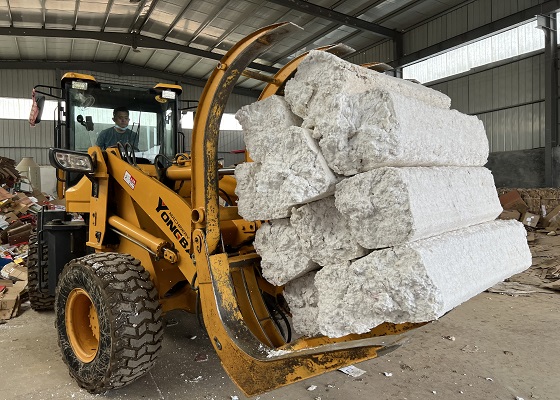Difficult to implement styrofoam recycling plant VS post-consumer waste disposal with styrofoam compactor
The ban on styrofoam in the Washington area began to appear a few years ago. However, repeated bans have not been very effective because the ban standards for different industries are not uniform. We have to admit that styrofoam is a material that covers It is a kind of packaging material with a relatively broad industry. In other words, at present, many industries have not found alternative high-quality materials, and the application of styrofoam has to continue. The general exempted areas and industries mentioned in the ban generally include: packaging of raw meat, undercooked or slaughtered meat, fish, poultry or seafood, vegetables and fruits. In other words, it is the packaging of most fresh food. Styrofoam containers used for pharmaceuticals, medical devices and biological materials, perishable goods shipped from wholesale or retail establishments are also exempt.

In fact, the failure to unify the implementation standards of laws and regulations will itself bring certain difficulties to implementation. Therefore, banning styrofoam may not be a good way to solve white pollution. In addition to solving the problem at the source, we can focus on the recycling process after use, which seems to have greater significance for recycling styrofoam.
Recycling after reasonable use of styrofoam by enterprises has become the main way to control white pollution. Using styrofoam compactor, a device that is 100% physically recycled, has become a more common choice. GREENMAX styrofoam compactor has relatively reliable crushing and compression functions. Its main function is to compress gas-filled styrofoam, which is also a key step in recycling styrofoam. The Styrofoam compactor uses the function of screw extrusion to compress the styrofoam block into a compression ratio of 50:1.
.png)
GREENMAX suggests that before finding alternatives to styrofoam, we should focus on the recycling of styrofoam instead of formulating complex and less feasible bans in an attempt to prevent white pollution in this way. If you are interested in the recycling of styrofoam, please feel free to consult us.

